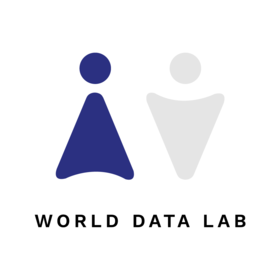World Data Lab projects 100m African youth population growth by 2030
World Data Lab (WDL), in partnership with Mastercard Foundation, yesterday in Abuja launched the Africa Youth Employment Clock in Nigeria. According to WDL projections, Africa will experience its highest-ever youth population growth in this decade (2021–2030), with the population projected to increase by almost 100 million between 2023 and 2030 While inaugurating the Africa Youth […]

world data lab (wdl)
World Data Lab (WDL), in partnership with Mastercard Foundation, yesterday in Abuja launched the Africa Youth Employment Clock in Nigeria.
According to WDL projections, Africa will experience its highest-ever youth population growth in this decade (2021–2030), with the population projected to increase by almost 100 million between 2023 and 2030
While inaugurating the Africa Youth Employment Clock, the Minister of Budget and Economic Planning, Sen. Abubakar Atiku Bagudu stated that, “The Africa Youth Employment Clock is a powerful tool that will enable policymakers and stakeholders to access real-time data, fostering informed decisions to drive youth employment initiatives across the continent.
“This aligns with our commitment to empowering young Nigerians, addressing unemployment and building a sustainable and inclusive future where our youth can thrive and contribute to national development,” he said.
- Maiduguri flood: Dantata donates N1.5bn, NEDC N3bn to victims
- LP crisis: Nenadi Usman remains PDP member – Abure
Also speaking, Dr Reshma Sheoraj, Vice President, Strategic Engagements, World Data Lab, said the Clock is a user-friendly, publicly available digital tool that shows youth employment data which is available for all 54 African states.
She said the sub-national data is currently available for Nigeria, Ghana, Kenya, Ethiopia and Rwanda, with plans to expand to Uganda and Senegal, where the Mastercard Foundation has country-based programmes.
“The Africa Youth Employment Clock is a pioneering initiative that offers reliable and comparable labour market statistics, projecting trends in youth employment across the continent until 2030. Our mission is to provide decision-makers with the crucial data needed to drive meaningful change for the world’s youngest workforce,” she said.
Similarly, Rosy Fynn, Nigeria Country Director at Mastercard Foundation, said the launch aligns with the foundation’s mission to enable 30 million young Africans to access dignified and fulfilling work by 2030.
She added that “In Nigeria, where we have the continent’s largest youth population, this tool will be particularly valuable in shaping strategies that address both the challenges and opportunities young Nigerians face in the workforce.”
